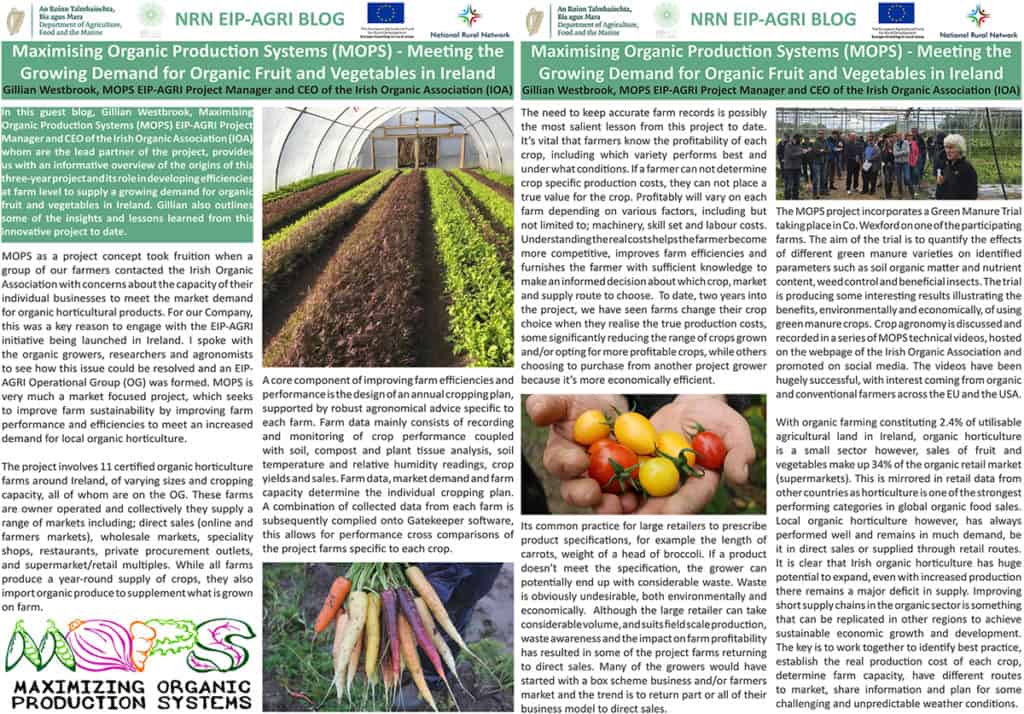Meeting the Growing Demand for Organic Fruit and Vegetables in Ireland
In this guest blog, Gillian Westbrook, Maximising Organic Production Systems (MOPS) EIP-AGRI Project Manager and CEO of the Irish Organic Association (IOA) whom are the lead partner of the project, provides us with an informative overview of the origins of this three-year project and its role in developing efficiencies at farm level to supply a growing demand for organic fruit and vegetables in Ireland. Gillian also outlines some of the insights and lessons learned from this innovative project to date.
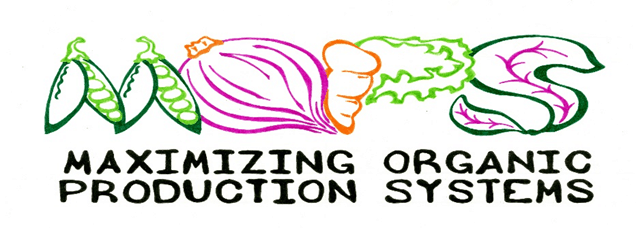
MOPS as a project concept took fruition when a group of our farmers contacted the Irish Organic Association with concerns about the capacity of their individual businesses to meet the market demand for organic horticultural products. For our Company, this was a key reason to engage with the EIP-AGRI initiative being launched in Ireland. I spoke with the organic growers, researchers and agronomists to see how this issue could be resolved and an EIP-AGRI Operational Group (OG) was formed. MOPS is very much a market focused project, which seeks to improve farm sustainability by improving farm performance and efficiencies to meet an increased demand for local organic horticulture.
The project involves 11 certified organic horticulture farms around Ireland, of varying sizes and cropping capacity, all of whom are on the OG. These farms are owner operated and collectively they supply a range of markets including; direct sales (online and farmers markets), wholesale markets, speciality shops, restaurants, private procurement outlets, and supermarket/retail multiples. While all farms produce a year-round supply of crops, they also import organic produce to supplement what is grown on farm.
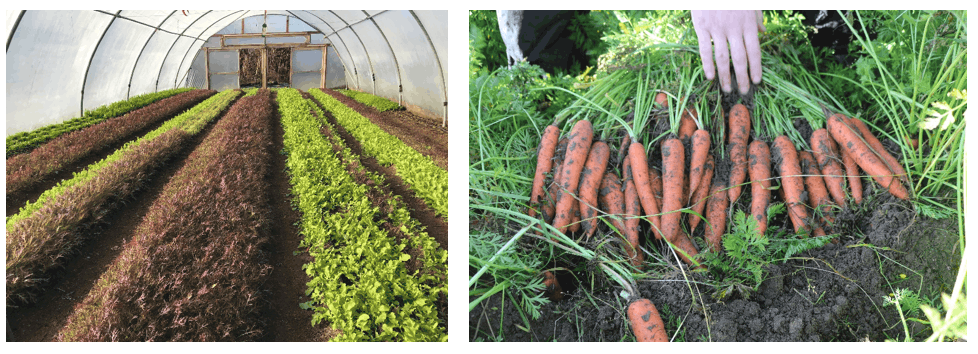
A core component of improving farm efficiencies and performance is the design of an annual cropping plan, supported by robust agronomical advice specific to each farm. Farm data mainly consists of recording and monitoring of crop performance coupled with soil, compost and plant tissue analysis, soil temperature and relative humidity readings, crop yields and sales. Farm data, market demand and farm capacity determine the individual cropping plan. A combination of collected data from each farm is subsequently complied onto Gatekeeper software, this allows for performance cross comparisons of the project farms specific to each crop.
The need to keep accurate farm records is possibly the most salient lesson from this project to date. It’s vital that farmers know the profitability of each crop, including which variety performs best and under what conditions. If a farmer can not determine crop specific production costs, they can not place a true value for the crop. Profitably will vary on each farm depending on various factors, including but not limited to; machinery, skill set and labour costs. Understanding the real costs helps the farmer become more competitive, improves farm efficiencies and furnishes the farmer with sufficient knowledge to make an informed decision about which crop, market and supply route to choose. To date, two years into the project, we have seen farms change their crop choice when they realise the true production costs, some significantly reducing the range of crops grown and/or opting for more profitable crops, while others choosing to purchase from another project grower because it’s more economically efficient.
Its common practice for large retailers to prescribe product specifications, for example the length of carrots, weight of a head of broccoli. If a product doesn’t meet the specification, the grower can potentially end up with considerable waste. Waste is obviously undesirable, both environmentally and economically. Although the large retailer can take considerable volume, and suits field scale production, waste awareness and the impact on farm profitability has resulted in some of the project farms returning to direct sales. Many of the growers would have started with a box scheme business and/or farmers market and the trend is to return part or all of their business model to direct sales.
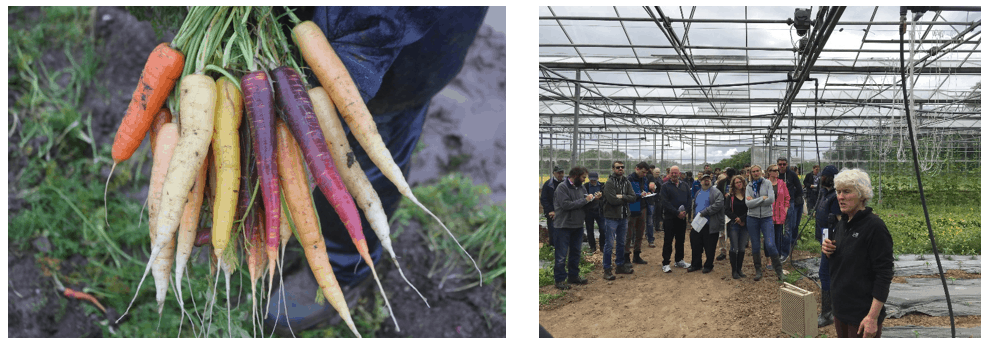
The MOPS project incorporates a Green Manure Trial taking place in Co. Wexford on one of the participating farms. The aim of the trial is to quantify the effects of different green manure varieties on identified parameters such as soil organic matter and nutrient content, weed control and beneficial insects. The trial is producing some interesting results illustrating the benefits, environmentally and economically, of using green manure crops.
Crop agronomy is discussed and recorded in a series of MOPS technical videos, hosted on the webpage of the Irish Organic Association and promoted on social media. The videos have been hugely successful, with interest coming from organic and conventional farmers across the EU and the USA.
With organic farming constituting 2.4% of utilisable agricultural land in Ireland, organic horticulture is a small sector however, sales of fruit and vegetables make up 34% of the organic retail market (supermarkets). This is mirrored in retail data from other countries as horticulture is one of the strongest performing categories in global organic food sales.
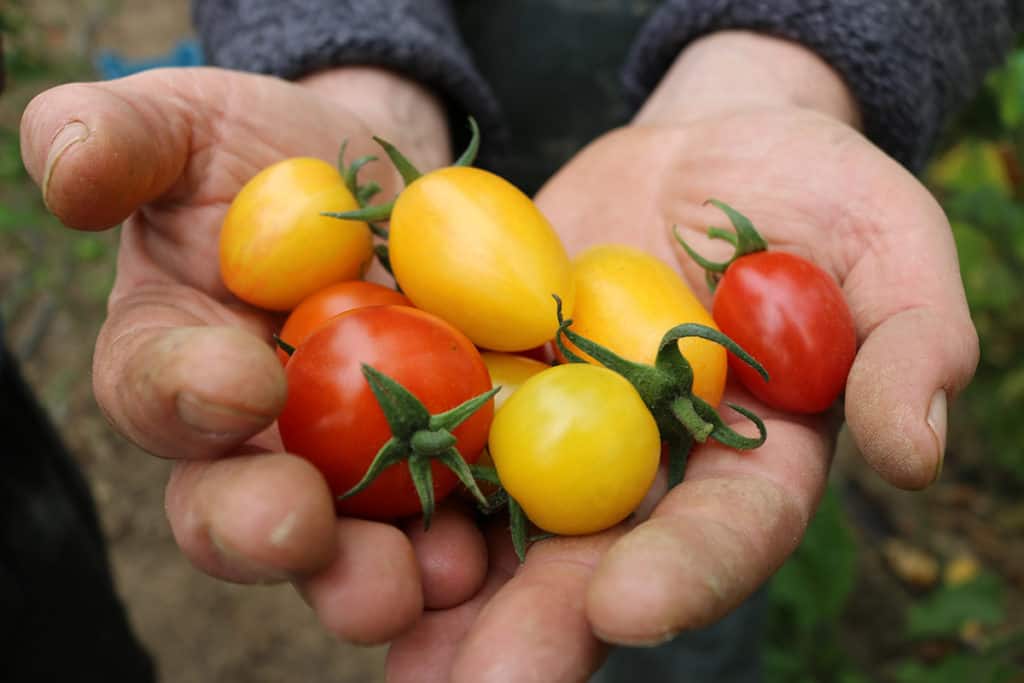
Local organic horticulture however, has always performed well and remains in much demand, be it in direct sales or supplied through retail routes. It is clear that Irish organic horticulture has huge potential to expand, even with increased production there remains a major deficit in supply. Improving short supply chains in the organic sector is something that can be replicated in other regions to achieve sustainable economic growth and development. The key is to work together to identify best practice, establish the real production cost of each crop, determine farm capacity, have different routes to market, share information and plan for some challenging and unpredictable weather conditions.
A printable version of this blog can be downloaded here
Author Biography
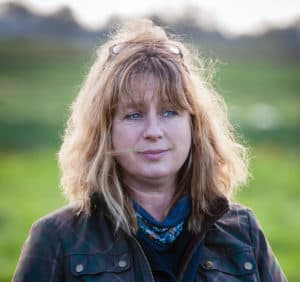 Gillian Westbrook is the CEO of the Irish Organic Association, the main certifying body for organic production and processing in Ireland, and she is the Project manager for the MOPS EIP-AGRI Project. Gillian has worked for over 30 years in the area of food & agriculture law and policy. She has worked for a wide range of agri-food business, including large cooperate companies, State agencies, artisan producers and farm lobby organisations.
Gillian Westbrook is the CEO of the Irish Organic Association, the main certifying body for organic production and processing in Ireland, and she is the Project manager for the MOPS EIP-AGRI Project. Gillian has worked for over 30 years in the area of food & agriculture law and policy. She has worked for a wide range of agri-food business, including large cooperate companies, State agencies, artisan producers and farm lobby organisations.
MOPS Twitter: @mopsorganic
Irish Organic Association (IOA) website: www.irishorganicassociation.ie/eip/
Irish Organic Association (IOA) Facebook: www.facebook.com/irishorganicassociation
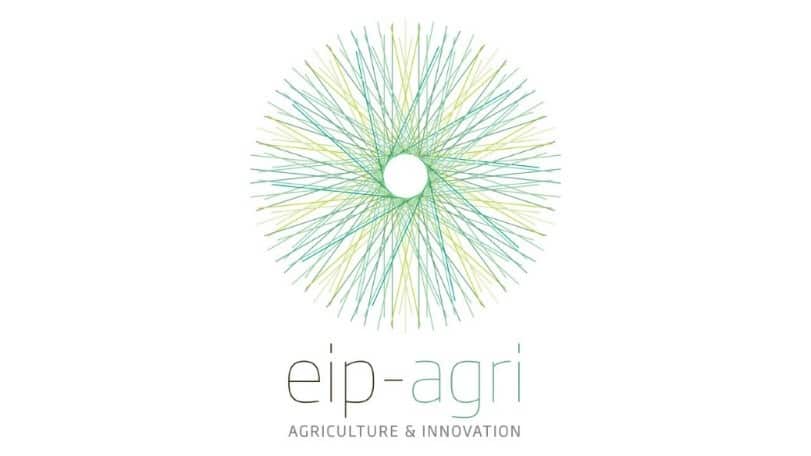
If you are interested in writing a guest blog post on the topic of EIP-AGRI, Farm Viability or LEADER to be featured on the National Rural Network (NRN) website and various social media pages, please email Dr Shane Conway, Researcher at NUI Galway and with the NRN for more details: shane.conway@nuigalway.ie.
The NRN are always looking to highlight and promote innovative initiatives that will help inspire people in the farming community and in rural areas to maximize the success of the objectives set out in the Rural Development Programme 2014-2020.

